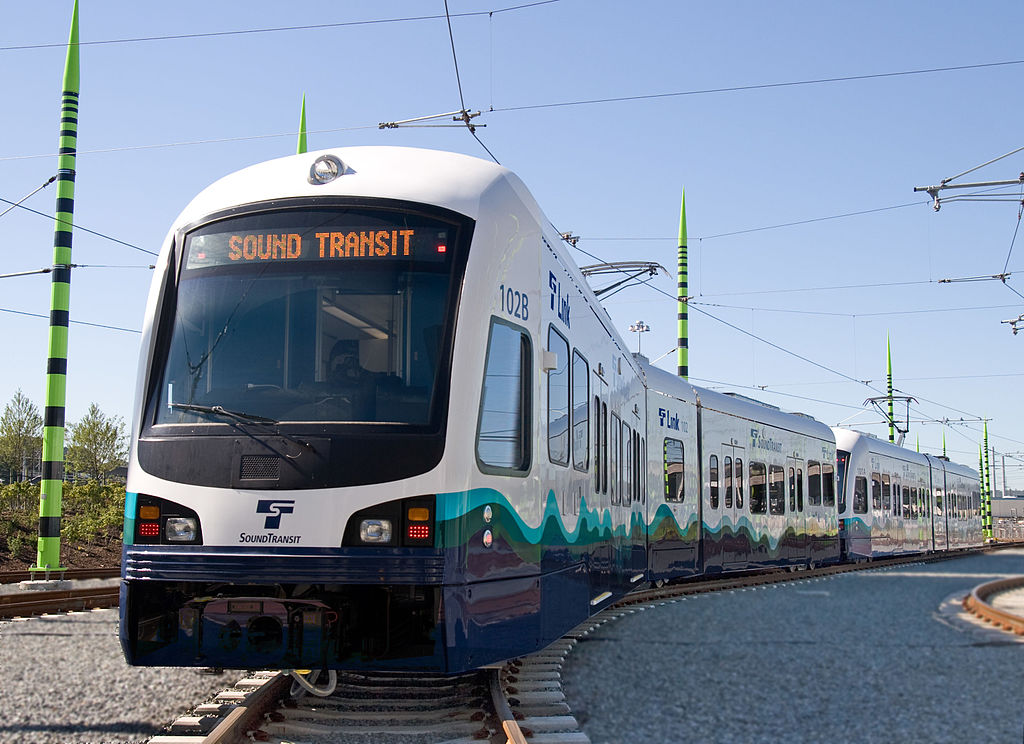
What happened last week:
No action taken on Sound Transit bills. On Tuesday, the House and Senate heard a lineup of Sound Transit-related bills, and we are thrilled to report that no action was taken. At Tuesday’s hearing we testified alongside partners from Pierce County, transit agencies, disability rights groups, and many other advocates and stakeholders asking legislators to please keep ST3 projects on track, and to ensure that any changes to the MVET schedule include full funding replacement. In addition, hundreds of community members took action emailing their representatives. Thanks to this work, no action was taken—at least this week. Stay tuned in case more advocacy is needed.
- Tim Eyman testified on I-976. We don’t believe there is appetite for a companion initiative from the legislature. Overall we think this is good news for an opposition campaign. His bill would cut car-tab fees to $30 a year, gutting the State’s Multimodal account and slamming the brakes on transportation projects all across the state. We will do everything we can to stop I-976.
Block the box passes out of committee! The House Transportation Committee voted HB 1793—expanding automated camera enforcement authority to include crosswalks, intersections and transit lanes—out of committee on Wednesday, February 27. Members voted on a substitute with two amendments: limiting the scope to cities greater than 500,000 people and also allowing a first offense to be a warning rather than a fee. The bill is now with the House Rules Committee and if passed will go to the House floor for a full vote in the coming weeks. Thank you to Rooted in Rights for their enlightening video, and to everyone who took action to support this bill over the past few weeks!
Senator Hobbs released his 10-year $17.1 billion transportation funding package (SB 5970, SB 5971, SB 5972). The Senate Transportation Committee held an initial hearing on his new transportation package last week and we went to testify. We are thrilled to see new flexible revenue options in the package and will continue advocating with our partners to increase the level of investment into transit, walking, and biking. We are against some of the proposals such as a bike tax. There are steps towards good climate policy in the package, although the current proposed carbon fee must have a better structure to be effective. Discussions around a new package will likely outlast this session. TCC’s overall priority is to grow investments in the multimodal account.
Representative Fey’s green transportation bill hearing. This bill focuses on supporting vehicle electrification, for personal vehicles, business fleets as well as transit. Thank you to our climate partners Climate Solutions, Northwest Energy Coalition, and Washington Environmental Council who stood with us to defend using the multimodal account to help fund sales and use tax refunds for the purchase of private electric vehicles. The bill offers positive policy for transit electrification, however we can’t support it until we identify alternative funding for the Electric Vehicle Sales and Use Tax Exemption.
The HEAL Act moves forward. The environmental justice bill had a hearing last week and passed to the Senate Rules Committee. This builds on our goals to build healthy and just communities and we appreciate the leadership of Front and Centered on this bill. More HEAL Act updates from Front and Centered here.
Low-income toll bill turns into toll study. We testified in support of HB 2068 and are working create a low-income toll program. HB 2068 moved out of committee as a statewide low-income toll study. We are working to address the financial and other equity impacts of tolling, and barriers to the benefits of tolling on frontline communities. We want to ensure that a discount program applies to low-income drivers across the state, regardless of which facility they use, and that the program is carefully created to ensure agency coordination, smooth customer experience, and address any additional barriers that underrepresented groups may face in using the toll system. Check out the details we are working to include with our low-income tolling study one pager here. The bill is now in the House Rules Committee.
What’s happening this week:
Through March 13th, legislators will be on the House and Senate floors voting on bills. This is a critical time and we will continue to work hard to advance our priorities and defeat harmful legislation.
For a snapshot at all the legislation we’re tracking, check out our 2019 Bill Tracker.




